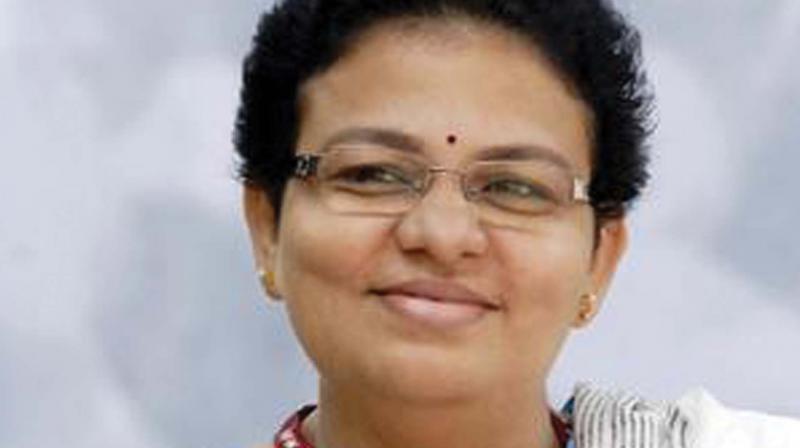It's always a fight: Deedi Damodaran
Women in Cinema Collective just a beginning, she says.

Thiruvananthapuram: ‘Women in Cinema Collective’ was an organisation which came into being as a response to the assault of an actor in Malayalam cinema. DC asked screenwriter Deedi Damodaran, one of its founding members, whether it would be regarded as a knee-jerk reaction. She replied, “The time demanded it (forming of the collective). The issue was a trigger, but it is just the beginning.”
She said that the issue was an eye-opener, as they realised the film industry has no panel before which we could complain about it.
“Malayalam cinema, in its 90 years, surely would have had incidents where women were harassed. But this was the first time that someone stood up to say that she was wronged,” she said. It was only after the issue that women in cinema started to discuss about a panel before which they could present complaints of sexual harassment. As per Visakha Guidelines, every workplace should have an internal complaints committee.
“There is no such board before which we can present a sexual harassment complaint. But this movement is not just about the complaints. It is just the beginning of a journey,” she said. She was asked whether she has had to face issues from a patriarchal society. “Every second. As a woman who considers herself as important as a man, or a human being, everywhere I am insulted, sidelined or ignored. It has always been a fight. I am gender sensitive and have watched the cinema of masters. It is around you. It is there in religion,” she said. Did the collective have a large impact? She said it definitely had made some impact.
‘Judge our work, not fete our presence’
That women and transgenders were grossly outnumbered by men did not stop a charged up all-women panel to throw light on the life of women in cinema and ask some questions which were never asked when the topic was taken up for discussion at the open forum at IFFK on Sunday. Actors Parvathy and Rima Kallingal, filmmakers Vidhu Vincent, Geethu Mohandas and Suma Josson, screenwriter Deedi Damodaran, cinematographers Fowzia Fathima and Mahim as well as author Meena T Pillai pointedly brought forward one issue: how many women get to decide which movie to watch? And Rima was candid in putting it across: “When Rani Padmini was running in theatres, how many ‘Ranis’ and ‘Padminis’ turned up to watch it?”she asked.
The film society movement introduced Malayalis to world cinema but very few women were part of the societies, according to Vidhu Vincent. “The women missed out on the politics of viewing (‘kazhchayude rashtreeyam’), because they were busy cooking and bringing up the children,” she said. The discussion reflected on the tendency of celebrating the few women who are part of cinema. Geethu Mohandas said, “This morning I was asked how I felt about IFFK including works of 35 women filmmakers. I asked, have you counted the number of male filmmakers?”
There were very few women cinematographers during early 2000s but now the ‘Collective of Indian Cinematographers’ founded by Fowzia Fathima has more than 90 members, according to her. She said women technicians were treated as extraordinary people when she became a cinematographer. The media and others would celebrate the few women. “There needs to be a shift. We need to start looking at the work of women rather than celebrate one or two women who are in the industry,” she said. Parvathy said that the gender of the filmmaker should be kept anonymous. She said ‘degenderisation’ was important as classifications like say ‘women cinema’ only help to worsen the marginalisation.

